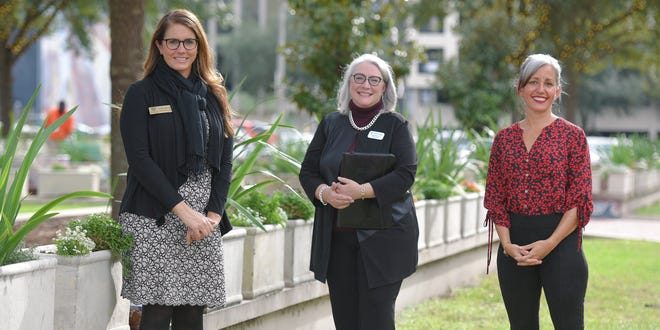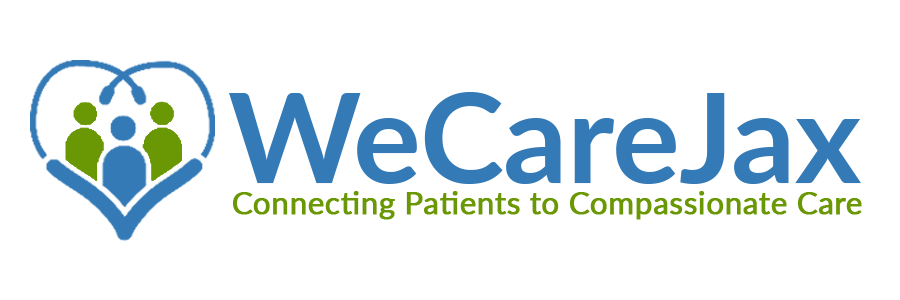Jacksonville nonprofits hope to connect more uninsured residents to primary care

Article by Beth Reese Cravey, The Florida Times-Union
Early next year a group of area health care providers will launch a pilot project with two clear goals: connect about 2,000 uninsured Jacksonville residents to primary care and save an estimated $4.4 million in unnecessary emergency room visits by 2024.
The Duval Safety Net Collaborative was founded in December 2019 by nonprofit partners who had long worked together informally but, after 2018 discussions led by Baptist Health, decided a stronger, more formal relationship was needed. The newly strengthened bond between We Care Jacksonville, Volunteers in Medicine, Agape Community Health Center, Community Health Outreach, MASS Clinic, Mission House and Sulzbacher — additional partners are expected to be added later — led to the new initiative called JaxCareConnect.
“We have a long road ahead of us to ensure all our uninsured neighbors have a viable option for health care within reach,” said Angela Strain, executive director of We Care, a volunteer coalition of medical professionals that has provided free care to the city’s uninsured population since 1993. “It is only when every neighbor has the chance to reach their full health potential without barriers that we can begin to see that Jacksonville values all people … equally. This is a cornerstone of a healthy community.”
The $525,000 pilot project is being funded by Riverside Hospital Foundation, Baptist Health, The Community Foundation for Northeast Florida and the Jessie Ball duPont Fund. Jacksonville City Councilman Michael Boylan is preparing legislation for another $200,000: $80,000 would go to We Care for administration costs and $20,000 each would go to the other six partners to help them increase capacity.
The concept is a “great idea,” Boylan said. “It’s something I think the city should support long term.”
JaxCareConnect will use multiple methods “to reach the greatest number of patients in need of care,” said Strain, who joined We Care in 2019.
Those methods include diverting non-critical emergency room patients into the JaxCareConnect system, providing them with a new medical home at discharge; developing its own centralized patient intake system; and educating the community about Duval clinics that serve uninsured residents.
The group does not want to reinvent their health care infrastructure wheel, so this project “utilizes joint resources to maximize service capacity and health care delivery,” Strain said. “This is the hallmark of collective impact, an organized commitment by multiple institutions to work toward a common goal for a public benefit.”
Also, the savings from reducing uninsured patients’ emergency room visits, she said, “is critical as the rising numbers of displaced workers who have lost their employer-provided health insurance due to the COVID-19 crisis may overwhelm local resources during the recovery period and beyond.
“Too often, people in our community rely on emergency departments for basic primary care,” said Brett McClung, president and CEO of Baptist Health. “Baptist Health has steadfastly supported the development of JaxCareConnect. It creates a network of our local free and charitable clinics, which makes it easier for community members without sufficient insurance to access the primary care they need.”
Jennifer Ryan, CEO of Volunteers in Medicine, said the Baptist Health-convened group reached a clear consensus.
“We met for over one year to discuss gaps in health care in our community, what the community needs, what is working well in our community and what needs work,” she said. “There was an overwhelming need for members of the community to know about their health care options — too many people were using the emergency rooms for primary care.”
Each organization also wanted to “maintain their identity and mission” but recognized that patient needs “are the same no matter which clinic they go to,” she said. And they all needed help getting the word out about their services.
“We need one place people can go to get linked to each of our services,” said Ryan, who joined Volunteers in Medicine in 2018. “This has set us up to add other organizations that can help with barriers to access to care like housing, transportation, food insecurity, infant mortality.”
Founded in 2003, Volunteers in Medicine has about 230 volunteers that annually provide about $1.2 million worth of primary and specialty care, dental and eye care, mental health and nutritional counseling, among other services.
“We have room to serve more,” Ryan said. “If our community isn’t healthy, our quality of life will suffer. We are so excited to be a part of the solution. … These are our neighbors, this is our community. This process has taught me that with a shared vision and common goal anything is possible.”
The pilot project’s new centralized intake system will be key: Residents or their referral agencies will fill out one common online application, including demographic information and health care needs. Patient health advocates will explain available options to them, such as insurance eligibility and resources to help improve chronic and complex health care issues. In-person and phone appointments will also be available.
“Advocates will help patients locate the right safety net clinic for their needs and geography, acquiring transportation when needed and resourcing other supports for overcoming barriers to care,” Strain said. “The collaborative clinic partners are geographically dispersed and there are clinic hours seven days week.”
The central intake process “will help patients get the care that they need quickly,” Ryan said. “If someone doesn’t qualify for our services, we are excited that there is a formal way to refer them directly to the services they need. The people we serve don’t have time to drive around from clinic to clinic to see if they qualify. They need a simple way to get to the care they require.”
To divert non-critical emergency room patients to primary care, JaxCareConnect will build relationships with hospital social workers and discharge staff, who already make follow-up appointments for uninsured patients with complex health issues and make calls to safety-net clinics. JaxCareConnect will also use such relationships with hospital and service agencies to help educate the community, as well as having public meetings, distributing print literature and working with the media, among other things.
“Persons without insurance will only utilize free and reduced-income clinics if they understand the mechanisms for accessing health care and trust the resources available,” Strain said.
With We Care serving as fiscal agent handling funding and staffing, the project hired its first staffer Nov. 6. Jenny O’Donnell, JaxCareConnect administrator, has 20 years experience as a nonprofit manager, including stints for the United Way of Northeast Florida, the former volunteer agency HandsOn Jacksonville and Episcopal Children’s Services’ Head Start Program.
“Her enthusiasm, drive and collaborative work will bring strength to the work the collaborative has already started,” Ryan said.
For more information contact We Care Jacksonville at (904) 674-6450 or go to wecarejacksonville.org.
To view the full article, click HERE.
